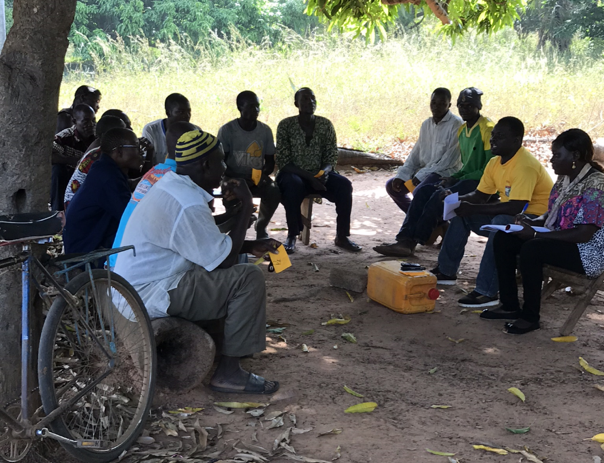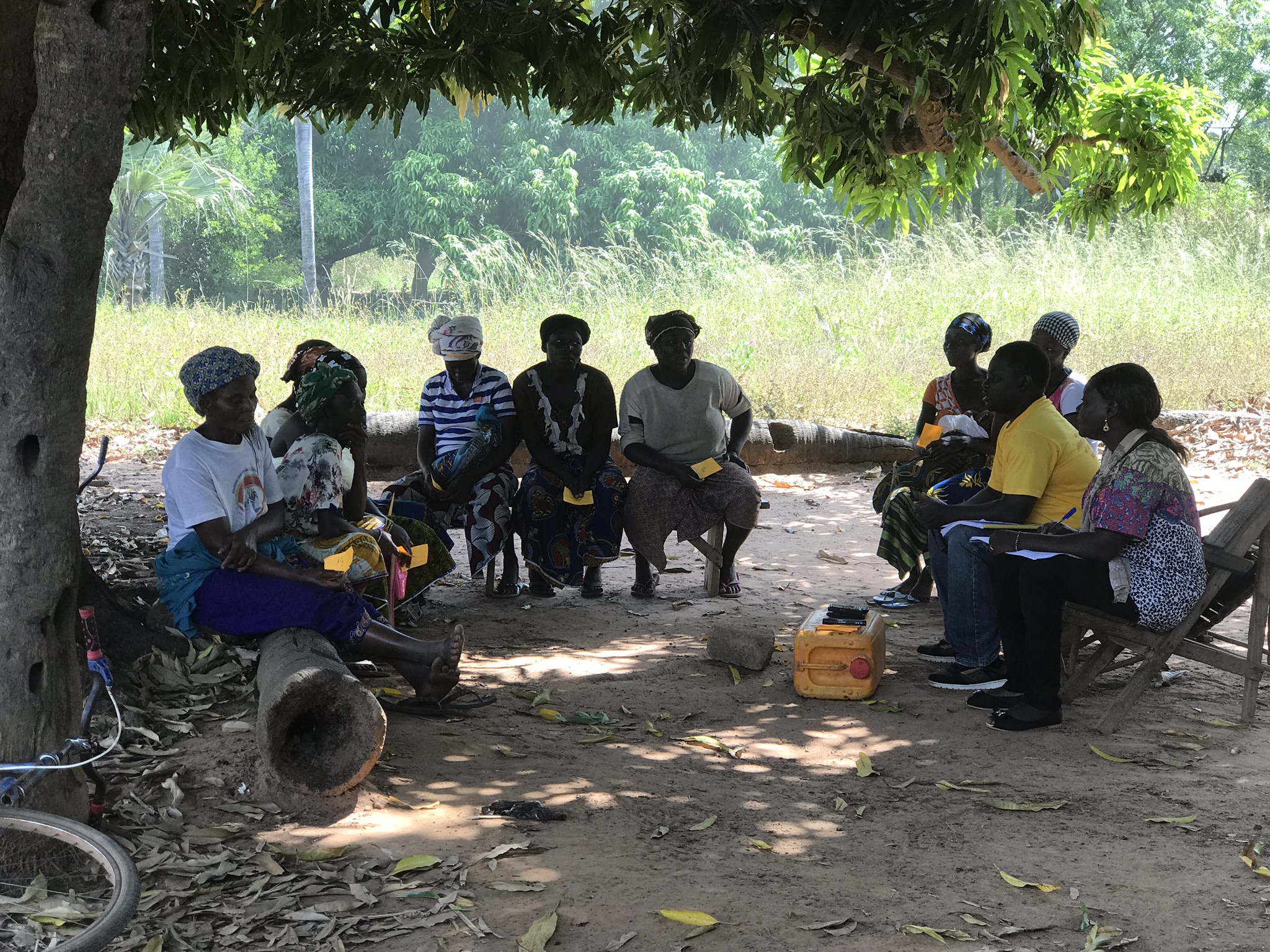Dr Sarah Dickin, Stockholm Environment Institute
Following a journal article recently published in World Development, Dr Sarah Dickin discusses the importance of using tools to measure agency, participation and empowerment in the water and sanitation sector. She shares reflections on developing and using the Empowerment in WASH Index, which was piloted in Burkina Faso.
With ten years left, it’s clear that we are not on track to achieve Sustainable Development Goals 5 on gender equality and women’s empowerment, and SDG 6 on safe water and sanitation for all. Since the 2000, progress on expanding access to basic water supply and sanitation has been evolving at the rate of 1% per year. However, it is estimated that at least 3% annual increases are needed just to ensure everyone has basic services by 2030 – which does not even consider access to safely managed services. The SDG 6 Global Acceleration Framework launched in 2020 aims to speed things up, and emphasizes the importance of SDG 6 for supporting progress in other SDGs, including gender equality.
Gender inequalities related to water, sanitation and hygiene (WASH) persist despite their long-standing recognition and efforts to mainstream gender in water programmes. This is not just due to the lack of water supply, but also to less observable factors such as unfair social norms and unequal burden of unpaid work, legal discrimination, women’s under-representation in decision-making processes, and violence against women and girls. Climate change threatens to exacerbate many of these challenges.

Addressing root causes of inequality should be at the heart of transformative programmes
A recent Oxfam briefing paper calls for greater adoption of gender-transformative water programmes to achieve both SDG 5 and 6. To understand transformative interventions, it is important to reflect on the ways that existing approaches engage with women and with gender relations. To address inequalities, many water and sanitation programmes place an emphasis on benefiting women, such as requiring more gender-balanced attendance at meetings, or ensuring specific needs for sanitation facilities are met.
Transformative programmes focus on underlying causes of inequality, such as unequal power relations, and have gained increasing attention due to their potential for impact. Examples include dialogue and actions within households and communities to address “harmful” gender norms and attitudes, such as to increase women’s empowerment and decision-making power. This often involves working with men and communities to transform social relations.

The Oxfam briefing paper outlines several pathways for greater uptake of transformative water programmes, which include improved data collection, increasing opportunities for women’s meaningful participation in water governance, and tackling social norms that disadvantage women, such as unpaid care work. One challenge for increasing availability and quality of sex-disaggregated data on water, sanitation and hygiene is a lack of tools.
The Empowerment in WASH Index
We developed the ‘Empowerment in WASH Index,’ to provide an approach for addressing this gap in order to track results. Collecting evidence in these areas, such as the share of unpaid work among household members, can help make the invisible visible, moving from anecdotal information to indicators that can be tracked over time and between regions. The tool builds on existing approaches to measure empowerment, while taking into account experiences from the WASH sector which were collected through stakeholder consultations, as per the image below.

The Empowerment in WASH Index was used as a diagnostic tool in Banfora, Burkina Faso, in collaboration with IRC and local WASH authorities from the Commune de Banfora, who are developing and implementing a 2018–2030 strategic master plan for water and sanitation services. The findings indicated that men were more empowered than women in WASH at individual, household and community levels – see figure below.

From this experience we found that for decision-makers, seeing ‘hard numbers’ was eye opening. Better evidence can provide impetus to develop more targeted and effective interventions that address context-specific sources of disempowerment. This is particularly important in the context of water programmes where a strong emphasis is on tracking technical or behavioral outcomes (e.g. safe water management).
By enabling collection and sharing of evidence and research on what strategies work (or don’t work) in addressing structural barriers in WASH inequalities, the Empowerment in WASH Index is a key tool for WASH researchers and practitioners who want to move beyond ‘business as usual’ to incorporate transformative approaches that contribute to progress SDG 5 and 6.
Our next steps for this work involve cross-cultural validation of the Empowerment in WASH tool and development of guides to facilitate use of the EWI in evaluation activities.
You can access the full open access paper published in World Development. This research project was supported by REACH through an accelerated grant titled ‘Empowerment of vulnerable people to address household WASH security risks‘.

